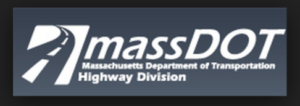The Cost of Toll Collectors
Are tollbooth workers economically inefficient? State officials seem to think so. Next summer, Massachusetts Department of Transportation (MassDOT) toll collectors are slated to be out of work.
So what is the cost of manual toll collection and what are the financial implications of going cashless?
According to data from Massachusetts Open Checkbook, 763 full-time and seasonal toll collectors worked on Massachusetts’s roads in 2014. In a 2013 investigative report, WBUR news estimated that 45 to 50 cents of each cash transaction on the Pike and Tobin Bridge went to pay toll workers’ salaries, costing the state $55 million that year. Open Checkbook records demonstrate that full time Toll Department II collectors made, on average, $88,369 in 2014. A majority of these collectors earned over $90,000 in 2014. One, Mauricio Orellana, earned a staggering $136,033. These figures include retroactive wage hikes but exclude benefits and retirement costs. Over the years, many have questioned toll collectors’ high salaries.
In a CBS Boston segment, longtime toll collector Peter Lachapelle stated that workers are “compensated because of the environment (they) work in.” Lachapelle continued, “It’s dangerous, people have lost their lives. We take the brunt of their frustrations, he argued, speaking to the daily hostility toll workers endure from Massachusetts drivers.
That’s true – dealing with the public isn’t always easy, especially after drivers have waited in long lines to pay their tolls. But others feel differently.
“I’m curious why toll takers with a high school education, who basically sit in a booth and take money, get paid more than Massachusetts teachers?” Bill, a resident of Lexington and frequent Pike commuter, expressed his annoyance in a WBZ public opinion interview.
Massachusetts Department of Elementary and Secondary Education’s most recent report lists the average Massachusetts 2013 teaching salary at $71,620. Teachers’ salaries depend on academic certification and often-rigorous qualifications.
The frustrations of drivers like Bill will cease once all electronic technology (AET) tolling is implemented in 2016. E-ZPass transponders and pay-by-plate imaging systems will supplant MassDOT toll collectors. In 2014, union leaders and the Patrick administration negotiated a deal ensuring toll workers collectively receive a three-year raise worth $24 million. The deal gave workers a 3 percent raise, retroactive to 2013, followed by raises of 2.5 percent in 2014 and 2 percent next year. It will allow toll collectors to retire with higher pensions, which The Boston Globe estimates will cost the state pension system an additional $11 million.
Detailing ramifications of the plan in a WBUR report, MassDOT’s previous Chief Operating Officer Frank DePaola stated, “The toll collectors that we employ … have done their jobs admirably over these years. The time has come that that position, in the near future, won’t be required.” DePaola also spoke of potential job opportunities for displaced toll collectors, assuring, “Our plan is to retain many of them working in the back office systems, so to speak, for toll collection and possibly provide training for other [Department of Transportation] positions.” Displaced toll workers’ are being provided considerable accommodations.
A 2013 CBS I-team investigation report did, however, question the “admirability” of some toll workers. The station’s investigators obtained hundreds of complaints filed with MassDOT involving toll collectors accused of having “sticky fingers”. A total of 103 motorists took the time to fill out complaints in 2010, 107 drivers requested refunds in 2011, and 70 complaints were filed in 2012.
AET is a progressive and economically promising step, increasing tolling options down the road, so to speak. However, capital expenditures to dismantle toll booths and costs to terminate employees will be significant, on top of the cost of installing the new system. But once fully implemented, the system is estimated to save a minimum of $45 million annually in operating expenses. Recent changes to AET’s mailed fee process demonstrate administrators’ willingness to adapt and improve customer service. Discussing MassDOT’s overall mission with WBUR news, Frank DePaola (now the MBTA’s interim general manager) emphasized that the department is continually “trying to look at doing things faster, more efficiently and provide more information to the public.”
A piece by the Smart Growth America coalition credited MassDOT’s new commitment to innovation, sharing that the agency recently began distributing large buttons with the message “But we’ve always done it this way” written across the front with a red circle and slash through it. The button serves as a reminder that even well-established inefficiencies must be challenged and addressed. Cashless tolling is a start.
Christina Doran is a Transparency Intern at Pioneer Institute from the University of Richmond, majoring in English and Economics.




